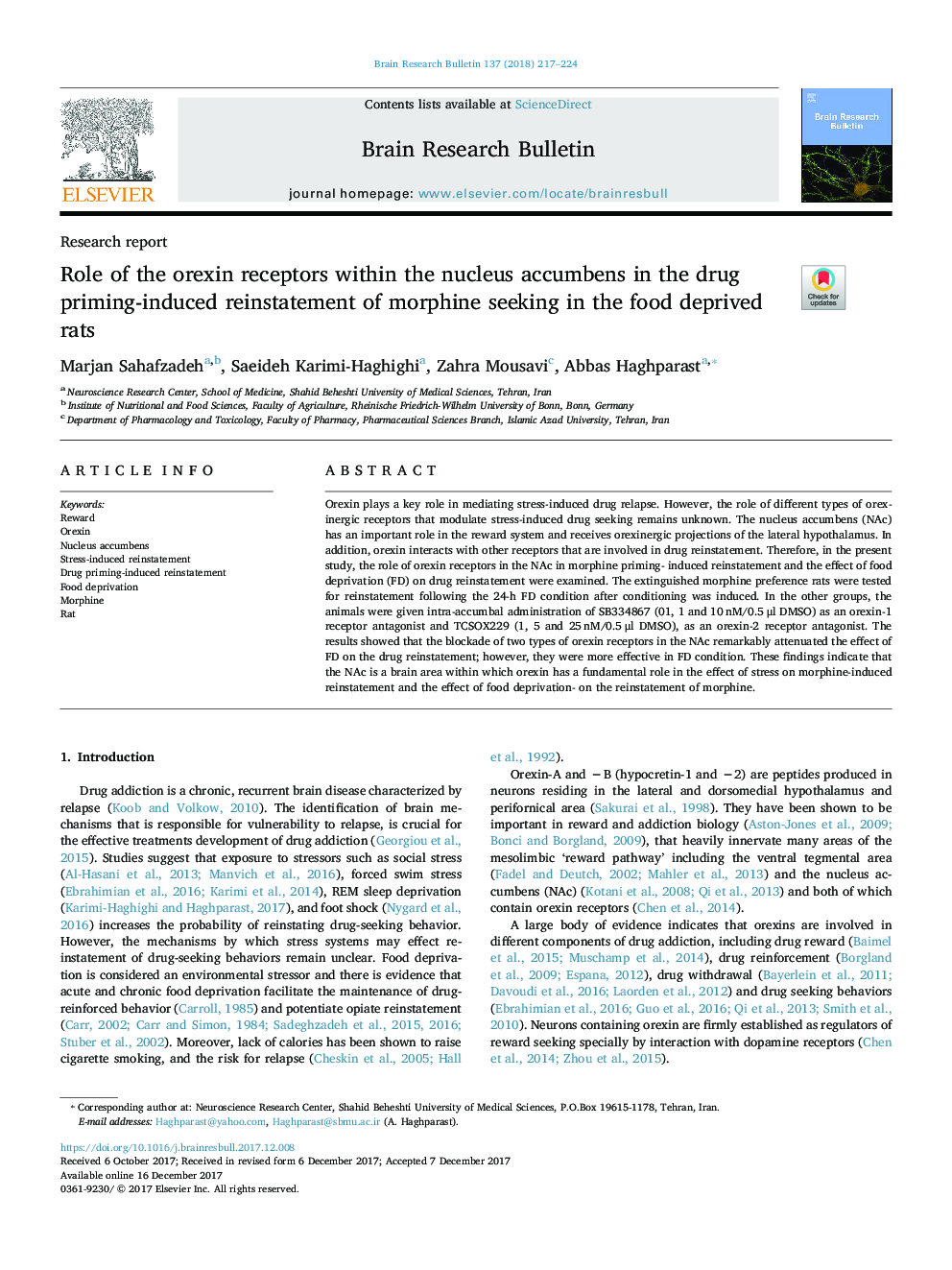| Article ID | Journal | Published Year | Pages | File Type |
|---|---|---|---|---|
| 8839007 | Brain Research Bulletin | 2018 | 8 Pages |
Abstract
Orexin plays a key role in mediating stress-induced drug relapse. However, the role of different types of orexinergic receptors that modulate stress-induced drug seeking remains unknown. The nucleus accumbens (NAc) has an important role in the reward system and receives orexinergic projections of the lateral hypothalamus. In addition, orexin interacts with other receptors that are involved in drug reinstatement. Therefore, in the present study, the role of orexin receptors in the NAc in morphine priming- induced reinstatement and the effect of food deprivation (FD) on drug reinstatement were examined. The extinguished morphine preference rats were tested for reinstatement following the 24-h FD condition after conditioning was induced. In the other groups, the animals were given intra-accumbal administration of SB334867 (01, 1 and 10â¯nM/0.5â¯Î¼l DMSO) as an orexin-1 receptor antagonist and TCSOX229 (1, 5 and 25â¯nM/0.5â¯Î¼l DMSO), as an orexin-2 receptor antagonist. The results showed that the blockade of two types of orexin receptors in the NAc remarkably attenuated the effect of FD on the drug reinstatement; however, they were more effective in FD condition. These findings indicate that the NAc is a brain area within which orexin has a fundamental role in the effect of stress on morphine-induced reinstatement and the effect of food deprivation- on the reinstatement of morphine.
Related Topics
Life Sciences
Neuroscience
Cellular and Molecular Neuroscience
Authors
Marjan Sahafzadeh, Saeideh Karimi-Haghighi, Zahra Mousavi, Abbas Haghparast,
